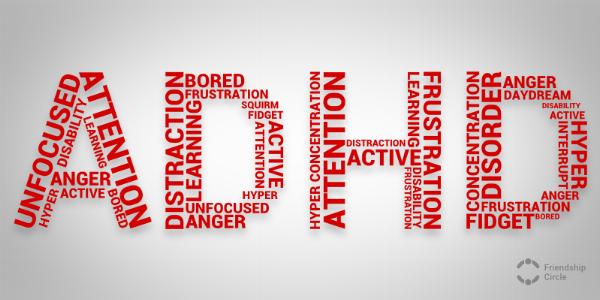ADHD and Martial Arts: Training for Discipline and Focus

Overview:
✍️ Struggling with ADHD at work? Our detailed ADHD article explains productivity strategies, therapy options, and coaching techniques that professionals can adopt.
ADHD is a neurodevelopmental condition that is characterized by challenges in maintaining attention, managing impulses, and controlling excessive motor activity. Despite the difficulties it poses in several areas of life, individuals with ADHD can employ ways to effectively control their symptoms. Martial arts training provides a regulated setting for the cultivation of discipline and attention. This article examines the mutually beneficial connection between ADHD and martial arts, investigating how the concepts and techniques of martial arts can be effective aids in controlling ADHD symptoms and promoting personal development.
Comprehending ADHD:
Prior to exploring the correlation between ADHD and martial arts, it is crucial to grasp the essence of ADHD. ADHD is a condition that includes a range of symptoms, such as difficulty paying attention, excessive activity, and impulsive behavior. These symptoms can have a major influence on a person's ability to perform well in academics, social interactions, and professional settings. Although medication and therapy are often used therapies, complementary approaches like martial arts training provide additional methods for managing symptoms.
The Advantages of Martial Arts for Attention Deficit Hyperactivity Disorder (ADHD):
Martial arts disciplines such as karate, taekwondo, judo, and jiu-jitsu prioritize self-discipline, concentration, and physical control. These traits are especially advantageous for those with ADHD. Below are several significant advantages of engaging in martial arts training for those with ADHD:
Martial arts classes adhere to a well-organized regimen that includes explicit principles and objectives. The consistency of routines and schedules offers individuals with ADHD a feeling of security and predictability, which can aid in controlling impulsive behavior and enhancing concentration.
Martial arts training entails demanding physical exertion, which enables individuals with ADHD to direct surplus energy in a productive manner. Engaging in regular exercise has been shown to reduce hyperactivity and improve attention and mood.
Martial arts demand practitioners to exert considerable focus and concentration on their motions, methods, and environment. Through repetitive drills and exercises, individuals with ADHD can enhance their ability to sustain attention and focus on specific tasks—a skill that translates to other areas of life.
Goal Setting and Achievement:
Martial arts promote goal setting and incremental progress, allowing individuals with ADHD to experience a sense of accomplishment as they advance through belt ranks or master new techniques. This process instills confidence and motivation while teaching the importance of perseverance and resilience.
Self-Control and Impulse Management:
Martial arts training instills self-control by emphasizing the importance of discipline, respect, and restraint. Learning to control one's impulses on the mat can translate to better impulse management in everyday situations, reducing impulsive behaviors associated with ADHD.
Stress Reduction: The meditative aspects of martial arts, such as controlled breathing and mindfulness, help individuals with ADHD manage stress and anxiety. By cultivating a calm and focused mindset, practitioners can mitigate the emotional dysregulation often experienced by those with ADHD.
Case Studies and Personal Testimonies:
To illustrate the efficacy of martial arts training for individuals with ADHD, let's consider a few case studies and personal testimonies:
Jake's Story:
Jake, a teenager diagnosed with ADHD, struggled with impulsivity and inattention in school. After enrolling in a taekwondo class, he noticed significant improvements in his ability to concentrate and follow instructions. Through consistent practice, Jake earned his black belt and became more self-assured and disciplined in all aspects of his life.
Sarah's Testimony:
Sarah, an adult with ADHD, found traditional forms of exercise unappealing due to their repetitive nature. However, after trying Brazilian jiu-jitsu, she discovered a newfound passion. The mental stimulation and strategic thinking involved in grappling techniques captivated her, leading to improved focus and emotional regulation both on and off the mat.
David's Journey:
David, a child with ADHD and sensory processing issues, struggled with sensory overload and social interaction. His parents enrolled him in a judo class, where he learned to navigate physical contact and develop proprioceptive awareness. Over time, David's confidence grew, and he developed meaningful friendships with his peers, demonstrating the transformative power of martial arts.
Tips for Incorporating Martial Arts into ADHD Management:
For individuals with ADHD considering martial arts training, here are some tips to maximize the benefits:
Research Different Styles:
Explore various martial arts disciplines to find one that aligns with your interests, goals, and physical abilities.
Find a Qualified Instructor:
Look for a reputable martial arts school with experienced instructors who understand ADHD and can provide tailored instruction and support.
Set Realistic Goals:
Start with achievable goals and celebrate small victories along the way. Progress may be gradual, but consistency is key to long-term success.
Practice Mindfulness:
Incorporate mindfulness techniques such as deep breathing and visualization into your training to enhance focus and relaxation.
Stay Consistent:
Commit to regular practice and attendance to reap the full benefits of martial arts training. Consistency builds discipline and reinforces positive habits over time.
Conclusion:
Martial arts training offers a holistic approach to managing ADHD symptoms, providing individuals with structure, discipline, and focus in a supportive environment. By embracing the principles of martial arts—such as perseverance, self-control, and respect—individuals with ADHD can cultivate valuable life skills while enhancing their physical and mental well-being. Whether you're a child, teenager, or adult living with ADHD, consider exploring the transformative potential of martial arts on your journey towards personal growth and self-mastery.
Note: IndiBlogHub features both user-submitted and editorial content. We do not verify third-party contributions. Read our Disclaimer and Privacy Policyfor details.







